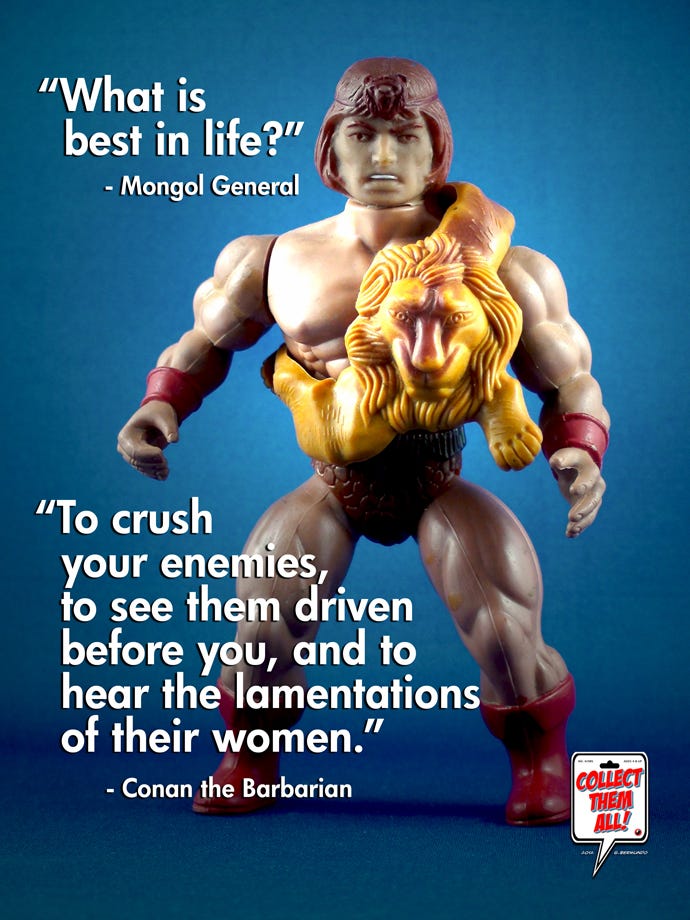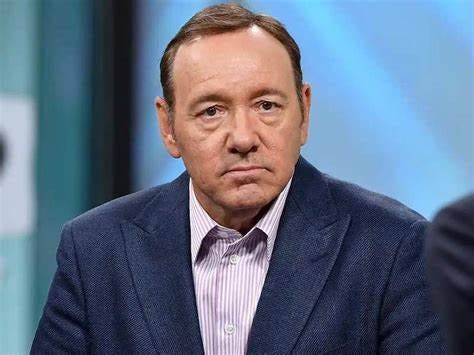Yes, Virginia, we somehow missed Sexual Offender Forgiveness Week
Who knew there was even such a thing?
Once upon a time, when we learned that a celebrity was a hard-core sexual predator—especially with children—they could count on (deservedly) being consigned to the ash heap of history. Remember Jared Fogle from all those Subway commercials—the guy who became famous for losing a ton of weight by eating nothing but Subway sandwiches?
Yeah, well, it turns out he had a thing for kids—lots of them, and it was pretty sickening by the time he was outed and arrested. Subway, of course, dropped him in a hot minute and distanced themselves as far as humanly possible from him. Fogle is doing something like four lifetimes in the Big House, and I hope he never walks the Earth a free man again.
Of course, Fogle is but one of a plethora of well-known sexual offenders. Jeffrey Epstein, anyone? Does any rational person believe that Epstein killed himself when he could have taken a lot of people down with him? Man, think of the empires he could’ve crumbled. I’m not a conspiracy theorist, but even I have to believe that Epstein had some help un-aliving himself.
Unfortunately, not everyone believes that sexual offenders need to disappear. It seems all you need is fame and talent and to have famous and talented friends willing to come to your defense.
Kevin Spacey happens to be one of those fortunate souls.
I wonder who’s speaking for his victims?
Welcome back to what is, apparently (and unfortunately), National Sex Pest Forgiveness Week.
Earlier this week, we saw Bill Maher and Bill Burr calling for the public to forgive Louis C.K. for going around, for years, asking younger, less-established female comics if he could masturbate in front of them.
Now, following the debut of the BBC Channel 4 Documentary Kevin Spacey Unmasked, which is now streaming on Max (and which features 10 new allegations on top of the previous 15), several actors have come forward in statements given to The Telegraph to call for Spacey’s return to Hollywood.
Don’t get me wrong; I’m all for forgiveness and second chances, but in the rush to rehabilitate Kevin Spacey, has anyone given any thought to his victims? Or is it all about a fabulously talented actor who had some “regrettable” incidents of a sexual nature that he regrets and would rather move past?
But if we talking about a total of 25 known incidents and allegations, is Spacey less a man with some unfortunate behavior control issues and more a sexual predator who may still pose a threat to society?
And what of those who are so fervently vouching for Spacey, actors like
Liam Neeson, Sharon Stone, Stephen Fry and F. Murray Abraham, who was notably booted from Apple TV’s “Mythic Quest” for, you guessed it, sexual misconduct.
“I vouch for him unequivocally. Who are these vultures who attack a man who has publicly accepted his responsibility for certain behaviour, unlike so many others?” Abraham asked, adding, “He is a fine man, I stand with him, and let he who is without sin cast the first stone.”
Has Spacey “accepted his responsibility” though? Because it sure doesn’t seem like he has. Spacey, for the same article, told The Telegraph’s Allison Pearson that he was a victim of a “rush to judgment” after the first 15 men came forward to accuse him of groping or otherwise sexually harassing or assaulting them.
I know nothing of Abraham, but where does he get off referring to victims of sexual abuse as “vultures?” When Spacey said he was a victim of a “rush to judgment,” how can we interpret that as accepting responsibility?
And there are currently 25 incidents and accusations of sexually inappropriate behavior on Spacey’s part—that are presently known. Can we assume that’s it? Or are there more accusations that have yet to come to light? How can we know?
If there are more accusations, how do we square that with the description of a man who’s “accepted his responsibility?” I’m not sure we can because what we may have on our hands is not someone who’s engaged in “certain behaviors” but rather a serial sexual predator—someone who should be behind bars for a significant period, regardless of his talent or his curriculum vitae.
As far as the stone-throwing goes? I don’t think that applies to this particular situation. Like, I really don’t think having, for instance, stolen eyeliner from CVS in high school disqualifies someone from being able to say “It’s bad for an adult man to grope a 14-year-old boy.”
“I was deeply saddened to learn of these accusations against him. Kevin is a good man and a man of character. He’s sensitive, articulate and non-judgmental, with a terrific sense of humour. He is also one of our finest artists in the theatre and on camera. Personally speaking, our industry needs him and misses him greatly,” said actor Liam Neeson.
“A good man and a man of character” doesn’t grope a 14-year-old boy or others who don’t desire sexual contact with him. Whether or not he’s “sensitive, articulate and non-judgmental, with a terrific sense of humour” is beside the point. Does he pose a threat to the safety of the general public? Do underage boys or men of any age have to fear being sexually molested when they’re around him?
Stephen Fry said that Spacey was merely “clumsy” and “inappropriate on many occasions,” so to “bracket him with the likes of Harvey Weinstein” and “to continue to harass and hound him, to devote a whole documentary to accusations that simply do not add up to crimes … how can that be considered proportionate and justified?”
I can also be somewhat clumsy, but my clumsiness has never caused me to attempt to sexually molest a 14-year-old boy or to be “clumsy” or “inappropriate on many occasions.”
And while I’m not sure anyone has compared Kevin Spacey to Harvey Weinstein, the criminal justice system is hardly continuing “to harass and hound him.” Stephen Fry might want to use a bit more caution when he refers to sex crimes or accusations of sex crimes as things “that simply do not add up to crimes.” Unless he’s an attorney and/or an expert on sex crimes, he may want to exercise more caution when engaging in speculation on what actions “simply do not add up to crimes.”
Sex crimes ARE crimes, regardless of Stephen Fry’s learned opinion.
Perhaps Kevin Spacey’s actor friends believe a different standard should exist for people like him. He’s talented, famous, likable, and has a great C.V., so it’s not like he’s a threat to the community, right?
But do we know that? The people asking for the criminal justice system to go easy on Spacey are actors. They’re very good at what they do, but not the sort you’d expect to have much insight into sexual predators. And Kevin Spacey may be a sexual predator.
Allow Sharon Stone to just straight up ruin Sharon Stone for you:
She told The Telegraph: “I can’t wait to see Kevin back at work. He is a genius. He is so elegant and fun, generous to a fault and knows more about our craft than most of us ever will.”
She said it was clear aspiring actors had “wanted and want to be around him”, adding: “It’s terrible that they are blaming him for not being able to come to terms with themselves for using him and negotiating with themselves because they didn’t get their secret agendas.”
Ah, you see — it’s a secret agenda because no one has yet landed on what that agenda could possibly be.
So what if he’s a genius? Or elegant and fun? Or can recite all of Hamlet in 14 languages? Or understands more about acting than eight Sir Laurence Oliviers ever could? If Kevin Spacey is a sexual predator, he shouldn’t be on the streets—no ifs, ands, or buts.
But why are actors who should know better making excuses for someone who, by all accounts, is a sexual predator?
I don’t know what kind of motive or unified agenda musical theater legend Anthony Rapp, director Tony Montana, the son of a former Boston anchorwoman, eight people who worked on “House of Cards,” various actors who performed at the Old Vic theater in London when Spacey was artistic director there, and Richard Dreyfuss’s son Harry could all have to say that Spacey groped, sexually harassed, or assaulted them. What possible shared agenda is going to drive 15 or so adult men from around the world to come forward to say that the guy from American Beauty grabbed them by the crotch?
The extra disappointing thing here is that Stone herself previously came forward about being sexually harassed by the former head of Sony.
The former artistic director of both the Royal Shakespeare Company and the National Theatre, Trevor Nunn, who directed Spacey in two productions at the Old Vic, explained that because the jury in his civil trial found him not guilty, he should be allowed to return to his career and be forgiven for everything he did.
Perhaps someone should explain to Nunn that finding Spacey “not guilty” is not the same as proclaiming his innocence. The burden of proof in a civil trial differs from a criminal trial, so we’re talking about apples and oranges here.
Not only that, there are at least 25 credible stories of Spacey’s sexual assaults. That should speak to a pattern of behavior that people might want to take seriously, even if there are no criminal convictions.
I don’t know what the truth is. Still, when 25 people come forward to say that Kevin Spacey behaved in a sexually inappropriate manner with them, that would seem to be something that law enforcement should look at with a high degree of seriousness.
Yes, Spacey is a fabulously talented actor with boatloads of money and many influential friends. That means, of course, that there’s every possibility that the proper application of money and pressure could make all of this go away. But does that mean his reputation should be shined up as well?
I don’t pretend to know what the answers to these questions are or should be, but I can’t help but wonder why his famous friends are more concerned with their brilliant and talented friend than with his victims' well-being.
It seems like several people have their priorities out of whack, yeah?
All of my posts are public at this time. Any reader financial support will be greatly appreciated. There’s no paywall blocking access to my work (except for a few newsletters). I’ll trust my readers to determine if my work is worthy of their financial support and at what level. To those who do offer their support, thank you. It means more than you know.








